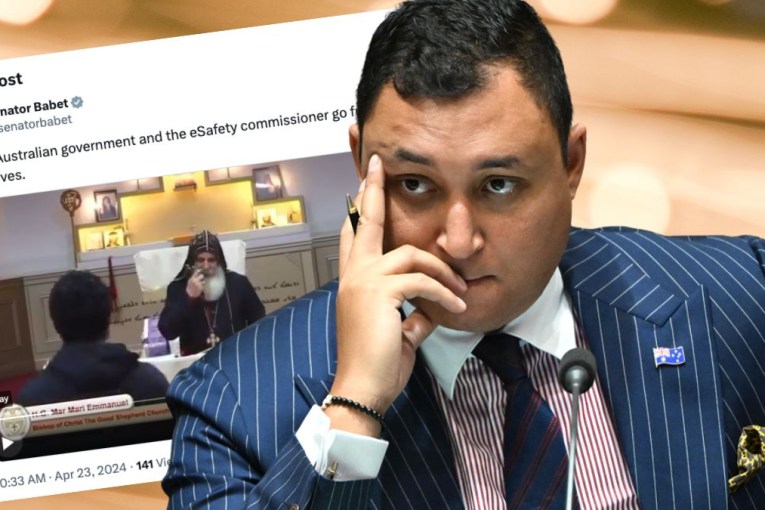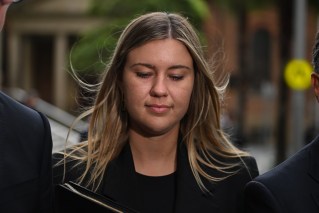Minor parties a major problem for Abbott in 2015
After 14 months in power, Tony Abbott’s thumping majority in the House of Representatives has failed to deliver the stable government that was promised at the 2013 Federal Election.
The political year ended with independent and minor party senators scuppering the government’s controversial financial advice reforms and proposed overhaul of higher education.
• Sex, guns and local jobs: our weirdest parliament?
• Minor party influx: look what you’ve done Ricky
• Lambie pulls no punches in anti-Abbott diatribe
Mr Abbott’s strategy of relying on Clive Palmer to deliver control in the Upper House disintegrated in November as divisions within the Palmer United Party crippled the Queensland hulk’s ability to cut deals of consequence with the government.
Tasmanian senator Jacqui Lambie’s decision to break ranks with Mr Palmer transformed the dynamics of the national political scene.
In 2015, the coalition has no choice but to deal directly with a swathe of minor party senators to get its legislative agenda rolling again.
Abbott at the mercy of minor parties
Queensland maverick MP Bob Katter believes the government will need to cultivate a working relationship with South Australian senator Nick Xenophon to restore public perceptions that it can govern effectively.
“Nick likes the limelight,” says Mr Katter.
“He’s now an important figure in the Senate and is building his own party.”
As Mr Palmer’s influence wanes, Xenophon is shaping as a linchpin in the upper house through which the government might be able to negotiate passage for legislation.

Clive Palmer has been a friend and foe of Tony Abbott’s.
Monash University political scientist Dr Nick Economou agrees with Mr Katter on Mr Xenophon’s importance, observing also that Mr Palmer has become a menace to the conservatives.
“If the Abbott government wants to have a better time of it in 2015 they will need to deal with Senator Xenophon,” he says.
“The government needs to deal with someone in the Senate that they can trust.”
Dr Economou believes the government dug a hole for itself in the May Budget by setting “an unachievable target on fiscal policy”.
“They simply don’t control the Senate and now they look ineffective.”
Saving the car industry
One of the big policy initiatives that minor party politicians will mount in 2015 aims to save Australia’s withering car industry.
While all local carmarkers – Ford, Holden and Toyota – have signalled their intentions to exit domestic production within the next three years, Mr Xenophon and Victorian senator John Madigan, along with Mr Katter in the lower house, are agitating for all cars purchased by the Commonwealth to be Australian-made.
It is a last-ditch bid to persuade at least one of the car manufacturers to continue in Australia.
A bill is expected to be put to parliament early in the New Year.
Mr Katter believes mandating local cars for government fleets will provide a meaningful incentive to induce one of the car makers to reverse its decision.
“One of the car makers will get the government contracts if they stay producing here,” he says.

Senator David Leyonhjelm has threatened to vote down bills.
“Government contracts will give that company an extra 15 per cent market share.”
Although the Abbott government is clearly wedded to market-driven settings for industry policy, it might have to give ground on such measures to avert an embarrassing showdown in the senate over Joe Hockey’s next budget.
Australians want checks on government
While the preferential voting system for the lower houses of federal and state parliaments is likely to function as insurance for preserving the dominance of the two party system, Dr Economou believes recent voting patterns point to a shift in the way Australians want their governments to operate.
“Voters are making a rational choice in the lower house and then they’re moving their vote in upper house contests to parties that operate outside the economic parameters of the major parties,” he observes.
“The coalition is losing support to right wing populist parties and Labor is losing upper house support to the Greens.
“The similarity of the pattern of voting in the recent Victorian election and the 2013 Senate election is striking.”
The bottom line for the coalition and the ALP is that the prospect of commanding majorities in both houses of parliament will become a rare privilege.

Sex party founder Fiona Patten is now an upper house member.
Moreover, governments in the 21st century will have to adapt to the reality of weaving deals with a myriad of special interests in their upper houses.
Victoria’s new upper house
New Victorian Premier Dan Andrews has a comfortable majority in the Legislative Assembly, but faces a term full of headaches in the 40-seat upper chamber where the ALP has only 14 members.
The government will be relying on a combination of support from five Green MPs and a diverse sprinkling of other minor party members to get its bills enacted.
Of course, Mr Andrews will have to listen to the Greens about their plans to abolish duck hunting in the state, and then tip-toe into talks with two Shooters’ Party MPs on the same issue.
The government might be able to count on new Sex Party MP Fiona Patten to back most of its economic policies, but major political storms are brewing on the sensitive issues of voluntary euthanasia and legalisation of marijuana.
“We’re the first party in the world to be elected on drugs and death,” says Ms Patten.
The former porn industry lobbyist is promising to build a secular society, introduce taxes on religious businesses and stump up a bill on voluntary euthanasia.
That’s an agenda certain to rouse a withering response from Rachel Carling-Jenkins, the Democratic Labor Party’s new member in the Victorian upper house.
How Mr Andrews tap dances through this jungle is anyone’s guess.








